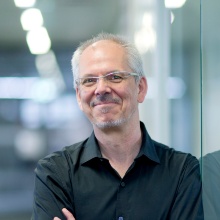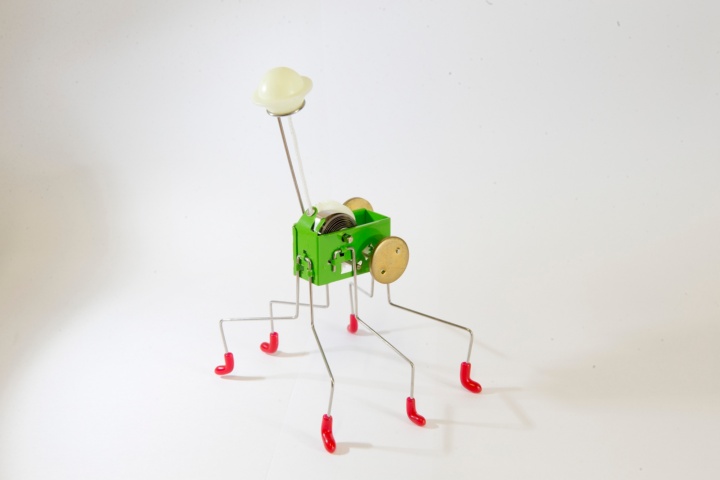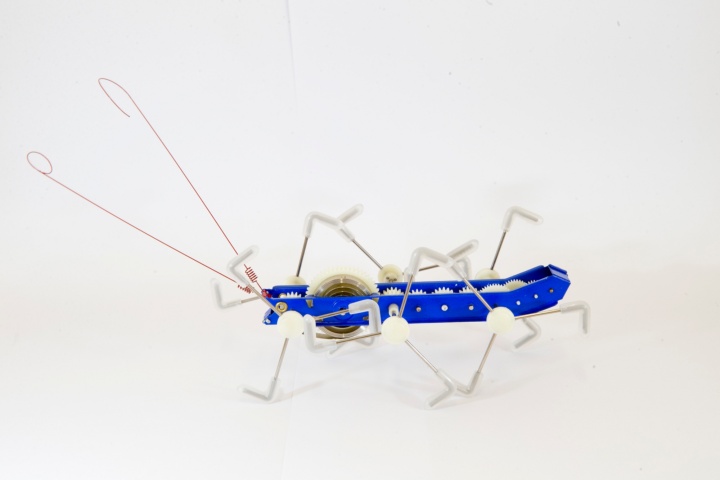The more knowledge is concentrated at a given location, the more attractive it becomes, i.e., the more it comes to function as a hub or hotspot. Since the 15th of December 2016, the Stuttgart-Tübingen Region has had its own offi cial hotspot, known as “Cyber Valley”. Cyber Valley researchers want to tap into a new pioneering spirit to send intellectual shock waves through Baden-Württemberg: full steam ahead for artifi cial intelligence!
The bar has been set high: The Stuttgart-Tübingen Regions own Neckartal (Neckar Dale or Valley) is squaring up to take on North America’s Silicon Valley. “We want to be the best!” declares Professor Frank Allgöwer, head of the Institute for Systems Theory and Automatic Control at the university of Stuttgart. Allgöwer, who specialises in Cybernetic Engineering and Applied Mathematics is absolutely convinced that this is a realistic aspiration and that the state of Baden-Württemberg is already playing at the highest international level.
The initial impetus for Cyber Valley came from the Max Planck Society for the Advancement of Science and the Max Planck Institute for Intelligent Systems in Stuttgart and Tübingen. Allgöwer and his Stuttgart colleagues Professor Marc Toussaint, Head of the Machine Learning and Robotics Lab at the Institute of Parallel and Distributed Systems, Professor Andrés Bruhn of the Institute for Visualization and Interactive Systems (VIS), and Professor Albrecht Schmidt, Head of the Department Human-Computer-Interaction at the VIS were all present at the very beginning. They are all driven by the thought that the alliance between the Universities of Stuttgart and Tübingen and the Max Planck Institute for Intelligent Systems working in close collaboration with partners from the industrial sector will result in a paradigm shift.
Cybernetic Control Circuit as Basis
The entire Cyber Valley concept is basically an initiative that has come to fruition over many years. “We’re not talking about a car or aeroplane here”, Allgöwer emphasises. “The approach is purely method based and is founded on the cybernetic control circuit.” The “observe, learn, act” triad encompasses such disparate subject areas as Robotics, Control System Theory, Computer Vision, Artifi cial Intelligence and Machine Learning.
Behind the cybernetic cycle there is a control circuit with an incredibly high number of implications. False learning can lead to a completely false perception return. The professor cites autonomous driving as an example: the artifi cial intelligence system would recognise the fact that the driver had steered the car too far towards the left-hand side of the lane. However, if it has not been correctly programmed then the system would initiate too sharp a turn to the right, which the system would again recognise as a problem and would again over correct for it. Consequently, the system would fall into a never-ending pattern of right-left-right zigzagging and the driver wouldn't be able to keep the vehicle in the middle of the road. In the worst case scenario, the faulty feedback loop would result in disaster. Such issues are referred to as “instabilities” – and they can occur all too easily. In the case of the Chernobyl disaster, for example, the cybernetics in the control circuit were fundamentally flawed. Allgöwer refers to this as a “text book instability”.
All the more reason why in all the research being carried out in the new Cyber Valley the control circuit is regarded as a mantra that has observed with painstaking care. Algorithms must absolutely be capable of learning. Machines should become intelligent and therefore adaptive and self optimising. In terms of pure software developers, Silicon Valley is slightly ahead. “But what we have in the Neckartal is unique know-how in respect of the production of cars and machines of all types.”
Artificial intelligence and learning algorithms should, therefore, be integrated into all new production plant, vehicle components, robots or household appliances, which will significantly expand their functionality as well as increasing their performance and flexibility. Crucial in this context is the fact that, far from being a short-term project, Cyber Valley represents a fundamental conviction about how science and industry should mesh with one another in future. This hotspot of science should evoke the same connotations as the famous creative idea incubators in Palo Alto, California: entrepreneurial spirit and optimism.
Entrepreneurial spirit and optimism
What gives Baden-Württemberg’s Cyber Valley the edge is that its focus is far broader. “We’ve got everything at this location”, Allgöwer states with glee: “world-class research institutes and high-tech’ industrial enterprises. That represents a huge potential advantage over the American hotspot with its narrow focus on software alone.” He goes on to say that: “Major changes are taking place all around us right now. We would do ourselves a disservice in Baden-Württemberg if we failed to pro-actively establish the additional infrastructure needed to add even more value with services and application, i.e., with data.” The state of Baden-Württemberg has donated a building to Cyber Valley that is intended to serve as the centre of the new emancipated culture of ideas. It will be open to everyone – entrepreneurs from the industrial sector, scientists and young university graduates with an idea. Another benefits of the Cyber Valley ideas incubator is that: “as a university, we obviously aren’t out to earn money. On the contrary – we’re the ones spending money!” Allgöwer explains with a chuckle.
And, with a good conscience, because research institutes turn out many young people, who later go on to become active in the market as (post-doctoral) engineers. By working together with the industrial sector, research findings can immediately be put to practical use. Conversely, industrial players can approach scientists for help with some interesting challenges. This dialogue, which is a long way from the “ivory tower paradigm”, is automatically conducive to the kind of entrepreneurial culture that is crucial to maintain if the region wishes to remain in the premier league of those out to breathe artificial intelligence into the machines of tomorrow. Susanne Roeder
- Prof. Frank Allgöwer, Institute for Systems Theory and Automatic Control (IST), phone +49 711 685-67734 or -67733, E-Mail, Website
- Website Cyber Valley




